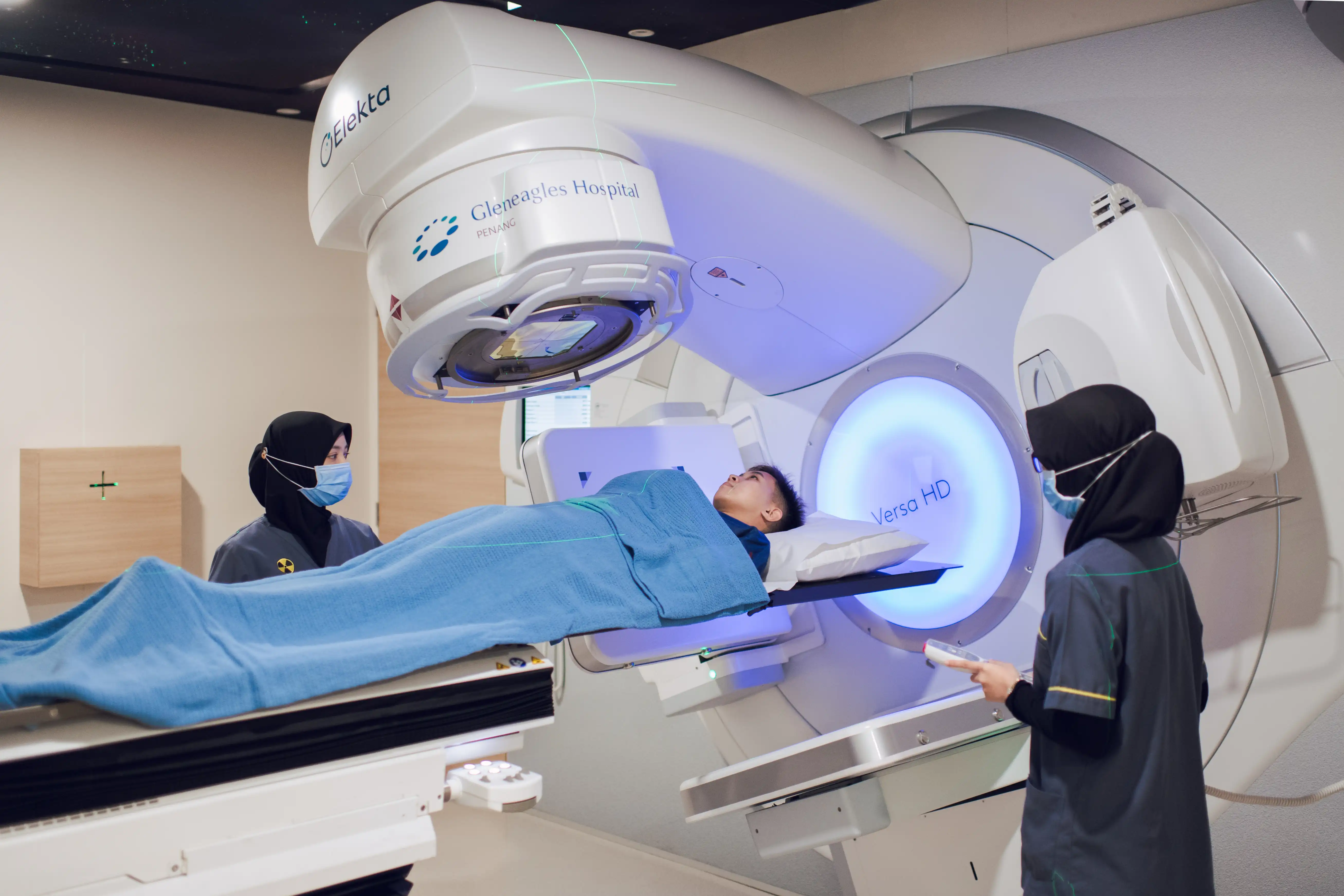According to the World Health
Organisation, 1.9 billion adults globally were overweight in 2016, and of these, 650 million were obese.

About obesity
World Health Organisation defines overweight and obesity as abnormal or excessive fat accumulation that presents
a risk to health.
Obesity is a major risk factor for several chronic diseases including diabetes, cardiovascular diseases, and
cancer. This can seriously affect a person’s health, and for certain individuals, it could be fatal.
The issue of being overweight and obesity is alarming in Malaysia. According to the
National
Health and Morbidity Survey (NHMS) 2019 , 50.1% of Malaysian adults are overweight and obese. Out of the
50.1% of Malaysian adults, 30.4% were overweight and 19.7% obese.
Obesity is more than just outward appearance; it is a medical issue that needs to be addressed because of its
link to non-communicable diseases in Malaysia such as cardiovascular diseases (heart attacks, stroke,
hypertension, hypercholesterolemia),
diabetes, cancers, and chronic respiratory diseases.
Obesity risk factors
The following are some risk factors that increase an individual’s risk of obesity:
- Lifestyle choices: Unhealthy diets, sedentary lifestyle, and liquid calories (soft drinks,
alcohol) contribute to weight gain.
- Age: Although obesity affects both young and old, hormonal changes and decreased activity
levels as you age increases your risk of obesity. Additionally, you also lose muscle as you age and this
decreases our metabolism, thus
leading to weight gain.
- Genetics: Obesity runs in families. Genes inherited from parents could influence how much
body fat you have. Genes may also affect your metabolic rate.
- Medication and diseases: Weight gain has been associated with certain diseases, such as
PCOS, Cushing syndrome, hypothyroidism, and osteoarthritis. Medication such as antidepressants and
anti-seizure medications could also cause
weight gain which might lead to obesity.
- Economic and social issues: Both economic and social factors are linked to obesity. An
individual who lives in an area with limited healthy food options, or if they could not afford healthy food
is more likely to develop obesity.
Having a safe place to walk, play, and exercise is also important.
Measurement for obesity
Body Mass Index (BMI) calculation
The most commonly used measurement for obesity is the Body Mass Index (BMI), which is a simple measurement
metrics to classify overweight and obesity in adults.
BMI is calculated by dividing an individual’s weight (in kilograms) by his or her height (in metres)
squared.
BMI = body weight (kg) / height x height (m2)
An individual is considered overweight when their BMI ranges between 23 - 27.4 kg/m 2 and obese when their BMI is
above 27.5 kg/m 2 .
| Classification | BMI |
|---|
| Underweight | Less than 18.5 |
| Normal weight | 18.5 – 22.9 |
| Overweight | More than 23 |
| Pre-obese | 23 – 27.4 |
| Obese-I | 27.5 – 34.9 |
| Obese-II | 35 – 39.9 |
| Obese-III | More than 40 |
Waist circumference calculation
The waist circumference can also be measured to determine abdominal obesity in an individual.
Abdominal obesity occurs when the measurement of waist circumference is:
- Above 90 cm in a man
- Above 80 cm in a woman
Complications of obesity
Obesity is linked to numerous health complications. Some of these complications are chronic and can be life
threatening if medical intervention is not provided:
- Heart disease
- High blood pressure
- Type 2 diabetes
- Stroke
- Certain cancers, including breast, liver, pancreas, and kidney cancer
- Digestive issues, including gallbladder and liver diseases
- High cholesterol
- Sleep apnoea
- Arthritis
- Infertility
- Severe COVID-19 infection
Weight-related issues can also cause:
- Discrimination
- Depression
- Shame
- Guilt
- Social isolation
About bariatric surgery
Bariatric surgery is an operation that helps an individual to lose weight by making changes to the digestive
system. This procedure is performed by either making the stomach smaller or by bypassing a part of the small
intestine.
Bariatric surgery is an option for people with BMI above 32 kg/m 2 with medical conditions. To be eligible for
surgery you will need to consult a multidisciplinary bariatric team.
Types of bariatric surgery
- Laparoscopic Sleeve Gastrectomy
Laparoscopic Sleeve Gastrectomy is a surgical weight-loss procedure in which about 70% of the stomach is
removed, leaving a tube-shaped stomach about the size and shape of a banana. Limiting the size of your
stomach restricts the amount of
food you can consume. It also prompts hormonal changes that assist with weight loss.
- Laparoscopic Roux-en-Y Gastric Bypass
Laparoscopic Gastric Bypass involves creating a small stomach pouch and bypassing a part of the small
intestines. The rest of the stomach remains functional and remains connected to the intestine. This
surgery results in hormonal changes,
which leads to better control of blood sugars in diabetic patients and results in other metabolic
improvements.
Intragastric balloon
A non-surgical procedure to treat obesity is to insert an intragastric balloon. An intragastric balloon is an
inflatable medical weight loss device that is temporarily placed into the stomach of patients who are overweight
or obese.
This device can be endoscopically inserted into the stomach or as a swallowable device without endoscopy.
This device aids in weight loss if surgery is not an option. The balloon limits the amount of food the stomach
can hold and thereby creates an early feeling of fullness and satiety.
Obesity prevention
Healthy food choices and activities are two main ways to overcome obesity. Individuals can avoid weight gain and
therefore, obesity by:
- Exercising moderately 20 to 30 minutes a day. Head to the park for a walk, go swimming or biking
- Choose healthy food such as fruits, vegetables, and protein. Avoid food that are high in sugar, trans fats
and processed food
- High calorie food should only be taken in moderation
Multidisciplinary Bariatric Team at Gleneagles Hospitals
At Gleneagles Hospitals, the multidisciplinary Bariatric Team consists of healthcare professionals such as
doctors, nurses, physiotherapists, dietitians, and pharmacists dedicated to help ensure the treatment success
and wellness of the patient throughout
his / her weight loss journey.
Contact us for your preferred weight loss option or schedule on appointment for a personalised treatment.
References











